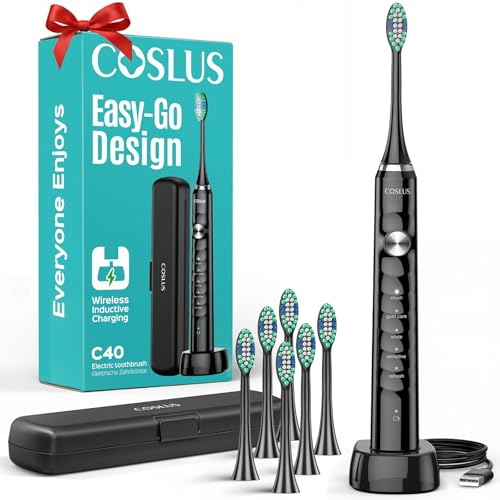
Electric toothbrushes have revolutionized oral hygiene, but one common question remains: can you safely use them around water? In this in-depth guide, we’ll uncover the truth about waterproof ratings, safe handling, and best maintenance practices for electric toothbrushes. Whether you use your brush at the sink or in the shower, we’ll help you understand exactly what’s safe — and what isn’t.
Understanding Electric Toothbrush Waterproofing
Modern electric toothbrushes are designed with sealed casings and protective barriers to resist water exposure. But “water-resistant” doesn’t always mean “fully waterproof.” Knowing the difference can save you from short circuits and warranty issues.
Water Resistance vs. Waterproof
- Water-resistant: Can handle splashes and light moisture but should not be submerged.
- Waterproof: Can safely endure immersion in water up to a specific depth for a limited time.
What IP Ratings Mean for Electric Toothbrushes
Most electric toothbrushes include an IP (Ingress Protection) rating, which defines how resistant the device is to dust and water. This rating helps you understand how cautious you should be during use.
| IP Rating | Meaning | Water Resistance Description |
|---|---|---|
| IPX4 | Splash resistant | Protected from water splashes (not immersion) |
| IPX6 | Heavy splash resistant | Can resist powerful water jets but not immersion |
| IPX7 | Waterproof | Can be submerged in up to 1 meter of water for 30 minutes |
| IPX8 | Advanced waterproof | Can handle deeper or prolonged submersion |
Common Waterproof Ratings by Brand
Here’s how top electric toothbrush brands rate in terms of water resistance:
| Manufacturer | Water Resistance Rating | Description |
|---|---|---|
| Boka | IPX7 | Withstands immersion in water up to 1 meter for 30 minutes |
| Philips Sonicare | IPX7 | Can be safely used in the shower and rinsed under water |
| Oral-B | IPX7 | Designed for shower use and resistant to accidental submersion |
| Colgate | IPX7 | Fully waterproof, allowing brief submersion and shower use |
✅ Pro Tip: Always check your toothbrush’s manual or product label to confirm its IP rating before using it in wet environments.
Can You Use an Electric Toothbrush in the Shower?
Yes — but only if it’s IPX7-rated or higher.
Most modern electric toothbrushes, such as those from Oral-B, Philips Sonicare, and Boka, are safe for shower use. However, the charging base is not waterproof, so always keep it away from water.
Important Safety Note:
Never charge your toothbrush near the shower, sink, or any water source. Even waterproof devices can become hazardous when plugged into electricity.
Is It Safe to Submerge an Electric Toothbrush?
Not entirely. Even IPX7-rated brushes are designed for short-term immersion, not continuous underwater use. Submerging your brush for longer than recommended can cause:
- Internal water leakage
- Battery corrosion
- Malfunctioning motors
- Warranty voids
To stay safe, avoid fully submerging your toothbrush unless specified by the manufacturer.
Proper Cleaning and Maintenance Tips
Keeping your electric toothbrush clean extends its lifespan and ensures hygienic use. Follow these best practices:
1. Rinse After Every Use
Hold the toothbrush under warm running water to remove toothpaste residue and food particles. This helps prevent bacterial buildup.
2. Use Mild Cleaning Methods
Avoid harsh detergents or alcohol-based cleaners. A simple damp cloth or gentle soap is enough for the handle.
3. Dry Before Storing
Use a clean towel to wipe off any excess moisture from the handle and base. Proper drying prevents mold and electrical damage.
4. Store in a Dry Area
Never store your toothbrush in humid spaces like closed cabinets or constantly damp bathrooms. Instead, keep it upright in a well-ventilated area.
5. Inspect for Damage
Regularly check for:
- Cracks in the casing
- Loose buttons or gaps
- Rust around the charging contacts
If you spot any signs of wear, contact the manufacturer before continuing use.
How to Protect the Charging Base
The charging base is the most vulnerable component of your electric toothbrush setup. It’s not designed to withstand water exposure.
- Keep the base dry at all times.
- Wipe it after each use.
- Avoid placing it near the sink or shower.
If water seeps into the charging port, disconnect it immediately and allow it to dry completely before reuse.
Can You Clean an Electric Toothbrush with Alcohol or Bleach?
No — avoid chemical cleaners entirely. Alcohol, bleach, and similar agents can:
- Damage waterproof seals
- Weaken plastic components
- Deteriorate button membranes
Instead, use mild soap and water or a disinfectant wipe approved for electronics.
Extending the Lifespan of Your Electric Toothbrush
A well-maintained electric toothbrush can last up to 5 years or longer. To maximize its longevity:
- Replace brush heads every 3 months
- Store it upright and ventilated
- Keep it away from chargers when wet
- Use only manufacturer-approved parts
Signs of Water Damage
If your toothbrush shows any of the following symptoms, it may have internal water damage:
- Weak or inconsistent vibration
- Battery fails to charge
- Flashing or non-functional indicator lights
- Corrosion near metal contacts
Quick Fix:
Stop using it immediately. Dry it thoroughly and contact customer support for diagnostic assistance.
Best Practices for Safe Electric Toothbrush Use
| Do’s | Don’ts |
|---|---|
| Use IPX7+ brushes in the shower | Immerse the handle for long periods |
| Rinse the brush head after each use | Clean with harsh chemicals |
| Dry before charging | Charge in damp environments |
| Store upright and ventilated | Leave on a wet countertop |
Frequently Asked Questions
1. Can I rinse my electric toothbrush under running water?
Yes, most electric toothbrushes can safely be rinsed under running water. Just ensure it’s not connected to the charger.
2. Is it okay to brush while showering?
Absolutely — as long as your toothbrush has an IPX7 rating or higher.
3. Can water damage my toothbrush battery?
Yes. If water gets inside the handle, it can corrode the battery and motor components.
4. How can I check my toothbrush’s waterproof rating?
Look for the IP code (e.g., IPX7) on the product packaging or the manufacturer’s website.
5. Should I use my toothbrush near the sink or basin?
Yes, but with caution. Keep electrical parts and chargers away from water splashes.
Conclusion
Electric toothbrushes are highly water-resistant, but not invincible. Understanding their IP ratings and maintaining proper hygiene habits ensures long-lasting performance. With the right care — from proper drying to cautious use in wet environments — your electric toothbrush can deliver a powerful, safe, and worry-free brushing experience every day.



